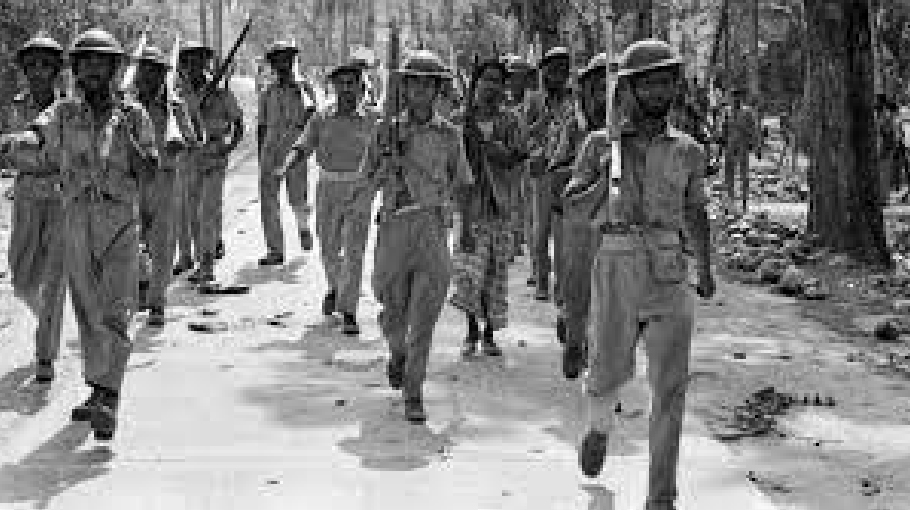Bangladesh Armed Forces in Liberation War

The Liberation War of Bangladesh is an important chapter in the contemporary political and military history of the twentieth century. The Father of the Nation Bangabandhu Sheikh Mujibur Rahman's political leadership's foresight, determination, wisdom and his personality inspired military Commanders to win the war. The overall success of this war intensified due to support of the populaces’ of remote areas to conduct the operations smoothly.
It is a difficult task to analyze the contribution of Bangladesh Army in the Liberation War from one perspective. Guerrilla warfare conducted by the Bangladesh Army, which went beyond the conventional methods of warfare, was different in terms of military warfare tactics. Guerrilla warfare is one of the modern strategies in the military history. Tumultuous political turmoil of March 1971 ended with the planned genocide by the Pakistan government 'Operation Search Light' on the night of 25 March and the arrest of Bangabandhu. Armed struggle for the independence of the people of East Pakistan sparked through the declaration of the Father of the Nation Bangabandhu Sheikh Mujibur Rahman on 26 March to fight for freedom on the eve of his imprisonment.
In the context of Bangabandhu's declaration of independence Bengali units stationed in East Pakistan, Bengali members working in various units, members on leave, and retired members joined initial resistance against the Pakistani Forces. Units of the East Bengal Regiment stationed in East Pakistan and members of the East Pakistan Rifles actively participated in the resistance.
The first visible military step to organize this initial resistance into the central command was the 'Teliapara Conference of April 4, 1971', held at Dak¬Bungalow in Teliapara tea garden of the then Habiganj sub-division. Senior most Bengali officer Colonel (retd) MAG Osmani was given the responsibility to coordinate the forces participating in the war of resistance and to bring the War of Liberation under a central command. Initial resistance continued throughout Bangladesh based on the decisions of the 1st and 2nd Teliapara Conferences (04 and 10 April 1971) until the formal swearing-in of the Mujibnagar government on 17 April 1971. The entire Bangladesh was divided into 4 (later 6) military zones and the war continued against the Pakistan Army led by military officers. A rudimentary structure of the wartime Bangladesh Armed Forces was formed through the rapid organization of retired members of the armed forces to train the unconventional war forces.
On 10 April 1971, after the formation of the Provisional Government of Bangladesh at Agartala, Colonel (retd) MAG Osmani was appointed as the Commander-in-Chief of the Bangladesh Forces on 12 April. The Headquarters of the Bangladesh Forces was established in Kolkata. On 17 April 1971, the Mujibnagar government was sworn in and Colonel Osmani took oath as the Commander-in-Chief of the Armed Forces with the status of Minister of State.
Under this Provisional Government, Colonel Osmani continued to command the ‘Bangladesh Armed Forces' involve in the war against the Pakistan Armed Forces inside Bangladesh from a temporary Headquarters at 8 Theater Road, Kolkata. From 12 July 1971, the war continued under regional military leadership until the whole of Bangladesh was divided into 11 sectors.
The military commanders of 11 sectors began conducting guerilla warfare inside Bangladesh at more intense pace from July.
Until the establishment of the Joint Command on 4 December 1971, Bangladesh Armed Forces continued to conduct the war under the leadership of Bangabandhu. Until the final victory on December 16, 1971, all orders were centrally directed and controlled through Bangladesh Forces.
The Bangladesh Armed Forces created through the liberation war of 1971 was praised in the world community. Inspired by the ideals of the Father of the Nation Bangabandhu Sheikh Mujibur Rahman and the spirit of the liberation war, the Bangladesh Armed Forces are a glare example of professionalism, morality, strong morale and protection of sovereignty throughout the world.



